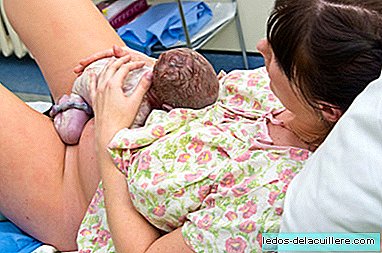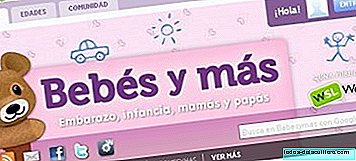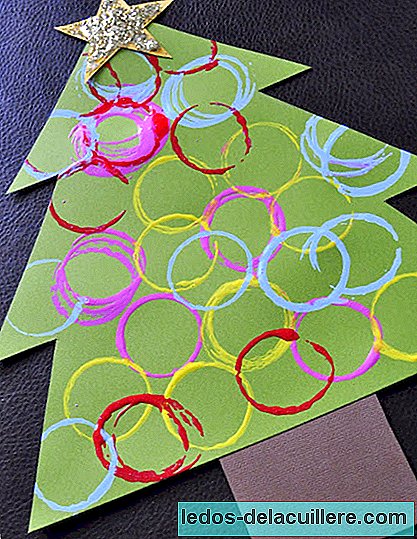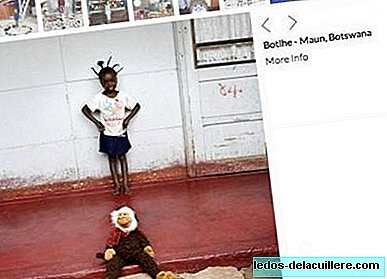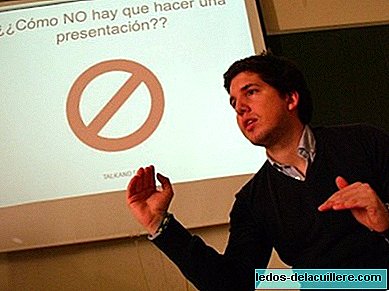
In Peques and Más this week we interview Eduardo San Clemente Zúñiga that with 27 years has already won the Prize at Castilla y León level Support for young entrepreneurs for your business project Talk and Talk Communications. In addition, Eduardo has been founder and president of the New Entrepreneurs Circle, an association of entrepreneurs from the University of Valladolid and one of the most active in the area. Now is the Director of Talk and Talk Communications a consultant that focuses on the improvement of personal communication: oratory, verbal, nonverbal communication, negotiation techniques, personal branding, etc. especially with the university students although it has detected and is preparing to work the next course, with the students of schools and institutes. His challenge is very ambitious although he is clear about what he wants to do in schools and the methods to apply to carry out this type of training. So what Eduardo is going to explain to us is the current situation of your project to work with kids, has identified and diagnosed the causes of poor communication among young people and wants to go to the origin of the problem. Eduardo has a degree in Tourism and Business Sciences from the University of Valladolid and I leave Eduardo to explain his project in detail.
How is the state of the art of communication. What lacks exist and what opportunity you have identified
I think that personal communication is an issue that has never been given much importance, except for some very specific sectors such as politics, senior management, etc. In general, we realize too late how important it is to have good personal communication. From Talk and Talk we intend to train in communication from the earliest ages, since we have been able to observe the communicative difficulties with which many young people arrive at university education. That being the situation we live in, you can imagine that the art of communication between children is something totally unknown and non-existent.
Speaking and communication must be introduced in schools
Of course. The introduction of communication and the ability to speak in public in schools is one of the great tasks pending, and I say one of them, because there are other very important ones that are also related such as entrepreneurial activity or creativity, and in this There are countries that take years of advantage.
What is your experience with Talk and Talk and what kind of preparation do you do with the children?
Our experience in Talk and Talk It comes mainly from the university environment and it has been precisely where we have realized that the art of communication must be brought closer to young people since childhood. Since Talk and Talk We make the little ones see the fact of communicating and speaking in public as usual, day to day, and not a stressful situation. But we do not focus solely on communication, but we also attach great importance to creativity, since we want to make children able to solve small problems without blocking and thus everything leads to better aptitude.
Children can start learning to speak in public from the age of 5 or 6
What is the recommended age for children to start speaking fluently
The most appropriate age to start touching on communication issues, which begin to become familiar with the fact of speaking in front of a group of people, and do not be ashamed to express their opinion tomorrow, usually starting at 5 or 6 years. We begin with activities focused on children precisely at that age.

What qualities does speaking practice contribute?
Of course it has many benefits, such as responsibility, organization, maturity, etc. Practicing the oratory in a proper way takes a great job behind organizing your ideas, exposing them in a clear and simple way, and for that you need a certain degree of responsibility and maturity.
What kind of preparation is necessary for children to develop these skills
We have many types of activities prepared to do with them, always through games and fun activities, where they see learning as a game and not as another hour of school. Our intention is that they see communication as something necessary and very fun.

What is the working method: computers, videos, images, nonverbal language, etc. to teach children to improve communication
I have always thought that the best way to learn is to have the person have fun while learning therefore the training we want to impart is mainly based on games. In these games also, of course, videos, images, but always included within the games themselves. It is also true that as the age of the children increases, the learning dynamics are modified, the way of learning is not the same with 7-year-old children, as with 14-year-old boys.
The training we want to give is based on games with the use of videos and images
What weighs more in communication: content, nonverbal language, rehearsals, training, memory, audience analysis, etc.
As they say, and it is also an expression that reflects very well the reality "A picture is worth a thousand words". Of course, what is most important in communication is everything that comes into view, as in this case non-verbal language. The ear also has a very important weight, that is, the tone we put on what we are communicating. But then, does that mean that what we say does not matter? Of course he has it, and a lot.
What we mean by the above, is that we have to know what we are saying, it is assumed that this is the case if we are going to talk about it, but when communicating, the most important aspects are non-verbal language, and the tone of voice with which you communicate.
How can parents help improve our children's spoken and written communication?
It may seem like evidence, but a great way to improve your child's communication is to support him when he makes a mistake, teach him how to do it correctly and vice versa, when he does something right, that he feels supported and wrapped up by his own.
This is fundamental, since we have found a great lack of self-confidence, a great fear of doing it badly and laughing at it, and that affects us in many fields of life, from communication, to making decisions different from the rest and being able to make mistakes on the road without fear of believing ourselves unsuccessful.
We have met people without confidence and afraid to speak in public
What can teachers do to enhance these skills?
Of course, what can be done by teachers in particular, and from schools in general, is to encourage more activities that include presentations, class discussions, etc. In short, more dynamic classes where only the theoretical, but the practical, is not taken into account.
We know that this is very complicated, and therefore we have created Talk and Talk so that it can be complementary to the regulated activity and thus have the possibility of training our young people in a much more practical way. Today, what you know is not so important, but how you express it. That is something that we have clear from Talk and Talk and that is what we try to teach every day to all the people who go through our different courses.

And so far the interview with Eduardo San Clemente from Talk and Talk. We thank you for all the explanations you have offered us about your project in which the little ones are going to be one of the focus of attention although the young and the elderly can also improve their ability to communicate with Talk and Talk. We encourage parents concerned to develop communication skills, which are highly valued and demanded, to learn more about this project and congratulate Eduardo for responding quickly, brilliantly and professionally to solve such a recognized need and we wish him many successes.


